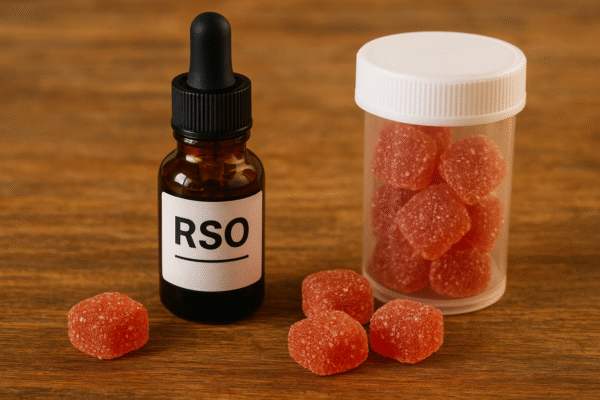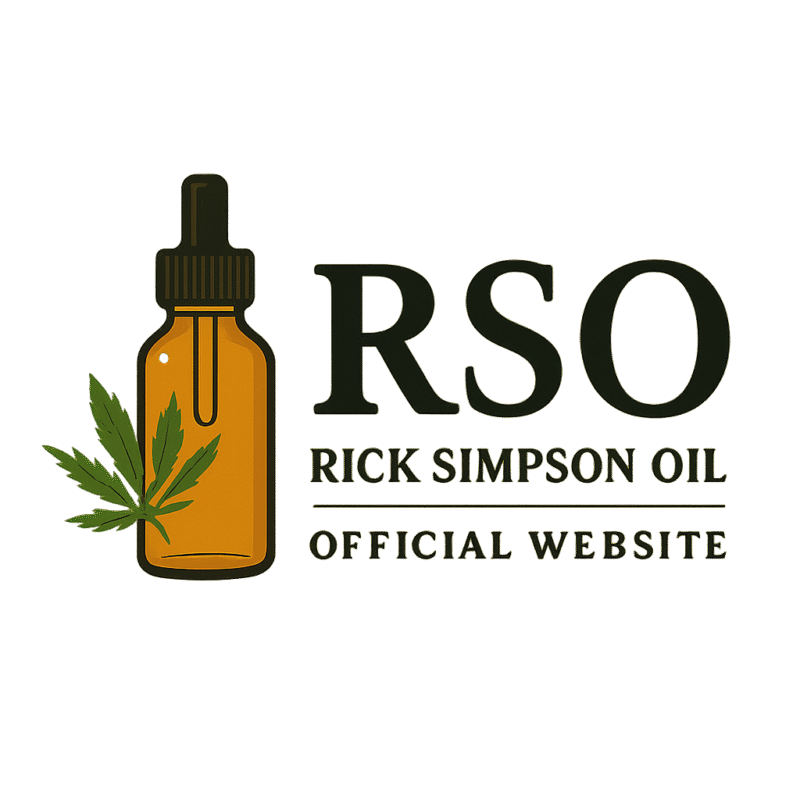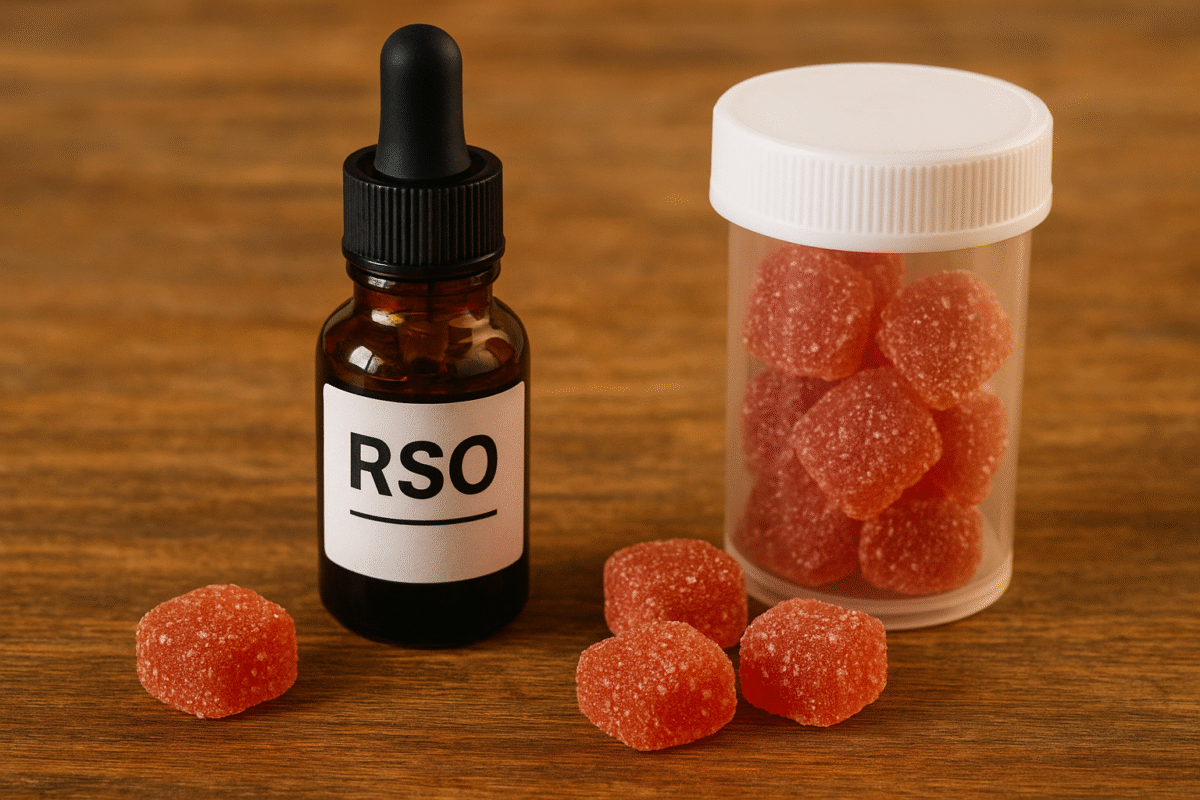Uncategorized
Should I Take RSO Gummies, Oil, or Suppositories ?
Should I Take RSO Gummies, Oil, or Suppositories? The 2025 Guide
Introduction: Understanding Rick Simpson Oil (RSO)
Rick Simpson Oil (RSO) has long fascinated both the medical and wellness communities for its potential healing effects. Derived from cannabis, RSO contains concentrated cannabinoids—especially THC—that may help with pain, inflammation, and appetite stimulation.
As cannabis therapies evolve, people now have more choices than ever: RSO gummies, RSO oil, and even RSO suppositories. But which one should you take in 2025? Let’s explore the science, pros, and cons behind each form to help you make an informed decision.
What Exactly Is RSO?
Rick Simpson Oil was created by a Canadian engineer named Rick Simpson, who claimed it helped him recover from skin cancer. RSO is a full-extract cannabis oil that typically contains high levels of THC (50–80%) along with other cannabinoids and terpenes.
It’s thick, dark, and resin-like—usually consumed orally or topically, but now found in edible and suppository formats as the cannabis industry innovates.

How RSO Works in the Body
RSO interacts with the body’s endocannabinoid system (ECS)—a complex network of receptors (CB1 and CB2) that regulate mood, pain, immune function, and more.
-
THC activates CB1 receptors in the brain, altering pain perception and mood.
-
CBD influences CB2 receptors, modulating inflammation and immune responses.
This combination may explain why some users experience relief from chronic pain, anxiety, or chemotherapy side effects.
Forms of RSO: Gummies, Oil, and Suppositories Explained
RSO Gummies — A Tasty Way to Medicate
RSO gummies are edible products infused with cannabis oil. They’re popular for their ease of use and discreet nature.
Pros of RSO Gummies
-
Simple dosing: Each gummy has a pre-measured dose.
-
Long-lasting relief: Effects last up to 8 hours.
-
Taste-friendly: Easier to ingest than raw oil.
-
Portable: Easy to carry and store.
Cons and Safety Concerns
-
Delayed onset: Takes 30–120 minutes to feel effects.
-
Inconsistent absorption: Food and metabolism affect potency.
-
Strong psychoactive effects: High-THC gummies may cause anxiety or dizziness.
RSO Oil — The Classic and Most Common Form
RSO oil remains the most traditional and widely studied form. It’s usually taken under the tongue (sublingual) or swallowed directly.
Benefits of Using RSO Oil
-
Precise control: Dropper dosing allows gradual adjustments.
-
Faster absorption (sublingually): Effects within 15–45 minutes.
-
Versatile use: Can be added to food or used topically.
-
Cost-effective: More concentrated than gummies.
Drawbacks and Side Effects
-
Strong taste: Thick, bitter, and resinous.
-
Psychoactive: High THC can cause intoxication.
-
Digestive sensitivity: May cause stomach upset if swallowed.
RSO Suppositories — The Controversial Option
RSO suppositories are designed for rectal or vaginal insertion, aimed at those who can’t tolerate oral ingestion.
Why Some Choose Suppositories
-
May bypass the liver, offering potentially higher bioavailability.
-
Useful for patients with nausea or difficulty swallowing.
-
Reported to offer localized relief (e.g., pelvic pain).
Risks and Lack of Scientific Data
-
Clinical studies are extremely limited.
-
THC absorption rectally is inconsistent and often low.
-
Risk of irritation or infection.
-
Not FDA-approved and largely anecdotal in use.
Comparing Absorption, Onset, and Duration
| RSO Form | Onset Time | Duration | Bioavailability | Best For |
|---|---|---|---|---|
| Gummies | 30–120 mins | 6–8 hours | Low (5–15%) | Long-lasting relief |
| Oil (Sublingual) | 15–45 mins | 4–6 hours | Medium (20–30%) | Controlled dosing |
| Suppositories | 10–60 mins | 4–8 hours | Variable (5–50%) | Localized or GI-sensitive users |
Which RSO Form Should You Choose?
Based on Your Health Goals
-
Pain management: RSO oil or gummies (steady systemic effects).
-
Nausea or digestive issues: Suppositories may help bypass the stomach.
-
Anxiety or sleep: Oil, due to easier titration and faster onset.
Based on Tolerance and Experience Level
-
Beginners: Start with low-dose oil (1–2 mg THC).
-
Experienced users: Gummies for long-lasting results.
-
Medical patients: Suppositories, but only under medical supervision.
Medical and Legal Considerations in 2025
While cannabis legalization continues to expand globally, RSO remains regulated due to its high THC content. In some regions, you can only access it through licensed dispensaries or medical prescriptions.
Always verify local laws before purchase and consult your doctor to ensure it doesn’t interact with medications.
Safety Guidelines for RSO Use
-
Start low, go slow: Begin with the smallest dose and monitor effects.
-
Use tested products: Choose RSO from labs that provide COAs (Certificates of Analysis).
-
Store safely: Keep away from pets and children.
-
Avoid driving: THC impairs reaction time and coordination.
FAQs: RSO Gummies vs Oil vs Suppositories
1. Which RSO form has the strongest effect?
RSO oil taken sublingually typically provides the most reliable and potent systemic effect.
2. Are RSO gummies safer than oil?
Not necessarily—both can cause side effects if overdosed. Gummies are just easier to take.
3. Can suppositories get you high?
Usually no, since THC absorption rectally is limited—but it varies by product.
4. Is it safe to make RSO products at home?
Homemade RSO can be risky due to solvent residues. Always buy lab-tested products.
5. What’s the best RSO dose for beginners?
Start with 1–2 mg THC per dose and gradually increase after 3–5 days.
6. Can I use RSO along with other medications?
Consult your doctor first—RSO can interact with sedatives, blood thinners, and antidepressants.
Conclusion: The Best Way to Use RSO in 2025
Choosing between RSO gummies, oil, or suppositories depends on your personal comfort, medical needs, and goals.
For most users, RSO oil offers the best mix of control, absorption, and flexibility. Gummies are ideal for convenience and long-term relief, while suppositories remain an alternative for special cases under supervision.
Always start small, use certified products, and seek professional guidance. Cannabis medicine is powerful—but only when used safely and responsibly.

